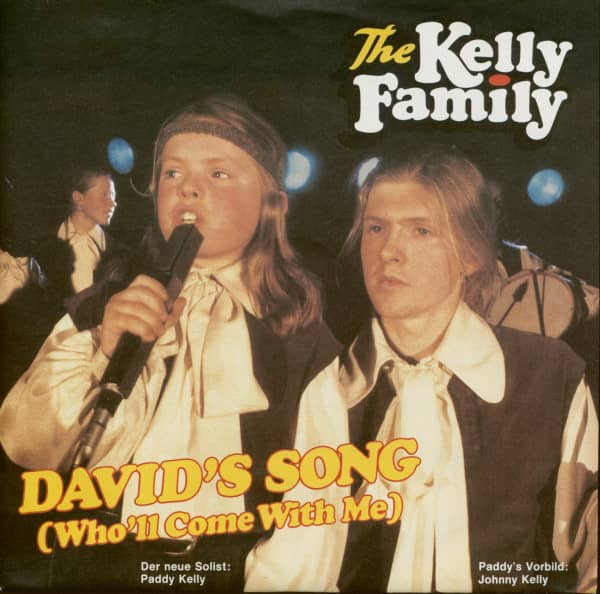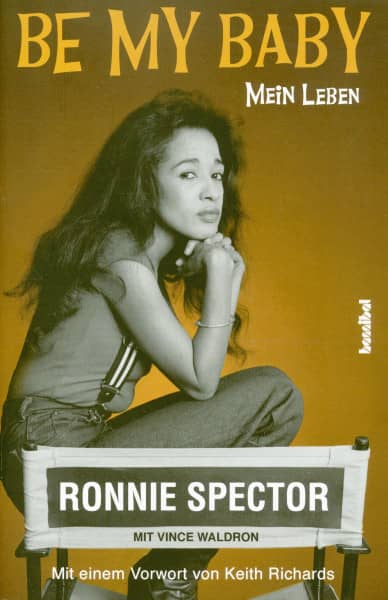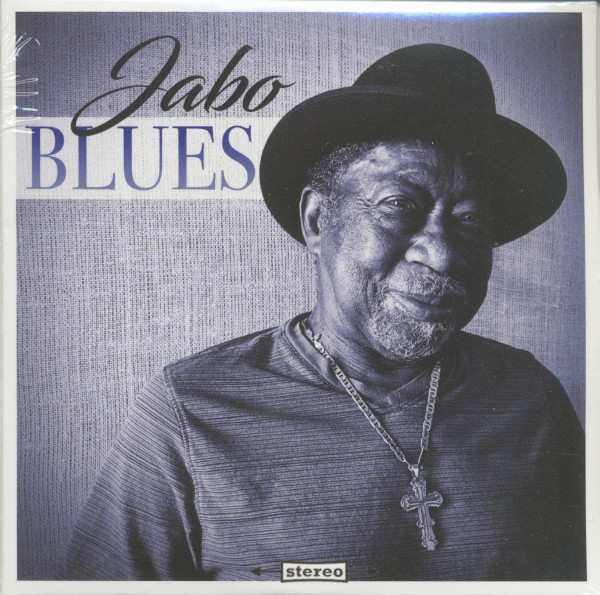Billy Mo Mr. Rhythm King (CD)

* incl. VAT / plus shipping costsDepending on the country of delivery, the VAT at checkout may vary.
Ready to ship today,
delivery time** appr. 1-3 workdays
- catalog number:BCD15966
- weight in Kg 0.115
Billy Mo: Mr. Rhythm King (CD)
Billy Mo
It was a Saturday, the now 73-year-old man remembers that much clearly, but he doesn't remember the date. "I'm sure it was April," says Billy Mo, "in April 1956': forty years ago, the musician who, like few other musicians in the entertainment business, has imprinted himself on the memory of an entire nation with just one song, came to Hamburg. "I came by train, first class, via Paris. But I didn't have a penny left in Hamburg. They robbed me there - all the money I had earned in a London restaurant was gone."
But Peter Mico Joachim, as he was then known, was not an asylum seeker who came to `Good Ol' Germany' as a supplicant, but a seasoned musician. At the main train station, he asked the porter to take him to the police. There he recited his story, got a little money to tide him over until Monday, when the banks would be open again. He spent the night in the fine 'Atlantic-Hotel', directly at the Aussenalster, there where usually the celebrities descended. By the way: it was to take six exciting years before he no longer had to ask to be allowed to find lodging in that house, but where his face alone was enough for the gates of good hotels to open.
On the following Monday, two days after his arrival in Hamburg, he was able to pay for his quarters. "I saw another black man getting out of a cab on the street. I approached him and asked where one could make money in Hamburg. He offered me to spend the night at his place. Then he told me that musicians were always needed at the `Blue Peter'."
That was a pub in St.Pauli, on the Grossen Freiheit, a side street to the Reeperbahn. Freddy Quinn had already celebrated his first successes in this district at the Hamburg harbor. St.Pauli was still a district that people visited to party. The money of the economic miracle years in Hamburg was gladly and often carried there. The 'Blaue Peter' was by no means a flophouse, but rather a pub where the artistic milieu liked to meet.
Rock 'n' roll had not yet conquered the red light district, and the Beatles still had the 'Starclub' ahead of them.
"I walked into the 'Blue Peter' and asked if I could join. The room was hardly bigger than a living room. Cozy and neat. They said, okay, we'll give it a try. 'What do you want to play? We play a lot of classical concerts, too.' I should try that, too. We started, and after a few bars I recognized the 'Warsaw Concerto' by composer Richard Addinsenn (1904-1977), rearranged for the 'Blue Peter'.
Then we played the work, suddenly I heard only me. I had my eyes closed, but I blinked a little and saw that the others had stopped playing and were listening only to me. Apparently, they had liked me."
That the audience was as surprised as his fellow musicians was not surprising: trumpet they knew until then only through Louis 'Satchmo' Armstrong, the legendary jazz trumpeter from the USA. But Billy Mo also proved that black people can do more than just roll their eyes jauntily: "It was a great time. I lived on Seilerstrasse, right near the 'Blue Peter' and didn't have far to go to work." At night he also played in other pubs, Dixieland, later Rock 'n' Roll.
Article properties:Billy Mo: Mr. Rhythm King (CD)
Interpret: Billy Mo
Album titlle: Mr. Rhythm King (CD)
Genre Schlager und Volksmusik
Label Bear Family Records
- Preiscode AH
Artikelart CD
EAN: 4000127159663
- weight in Kg 0.115
| Mo, Billy - Mr. Rhythm King (CD) CD 1 | ||||
|---|---|---|---|---|
| 01 | Swing, Methusalem | Billy Mo | ||
| 02 | Buona Sera | Billy Mo | ||
| 03 | Oh, Marie | Billy Mo | ||
| 04 | Ding Dong | Billy Mo | ||
| 05 | Darling, du weisst ja | Billy Mo | ||
| 06 | Regenbogen-Blues | Billy Mo | ||
| 07 | La Paloma | Billy Mo | ||
| 08 | Habe Mitleid | Billy Mo | ||
| 09 | Mary, My Girl | Billy Mo | ||
| 10 | Oh Jennilie | Billy Mo | ||
| 11 | Mister Rhythm King | Billy Mo | ||
| 12 | Das Fräulein Gerda | Billy Mo | ||
| 13 | Salambuli | Billy Mo | ||
| 14 | Nevada Swing | Billy Mo | ||
| 15 | You Are My Sunshine | Billy Mo | ||
| 16 | Some Like It Hot | Billy Mo | ||
| 17 | Baby | Billy Mo | ||
| 18 | Golden River | Billy Mo | ||
| 19 | Dickie-Doo...! | Billy Mo | ||
| 20 | Dolly-Doo | Billy Mo | ||
| 21 | Lass mich rein | Billy Mo | ||
| 22 | Billy Boy | Billy Mo | ||
| 23 | Gonggonza | Billy Mo | ||
| 24 | Tatalee | Billy Mo | ||
| 25 | Barberina | Billy Mo | ||
| 26 | Susie | Billy Mo | ||
| 27 | Pinguin-Jive | Billy Mo | ||
| 28 | Ay, Ay, Ay | Billy Mo | ||
| 29 | Mitternachts-Blues | Billy Mo | ||
| 30 | Ich kauf mir lieber einen Tirolerhut | Billy Mo | ||
| 31 | I'd Rather Buy Myself A Tyrolian Hat | Billy Mo | ||
Billy Mo
 Those who know Billy Mo only in his Tyrolean hat inevitably misjudge the musician Peter Mico Joachim. The jazz trumpeter, who was born on the Caribbean island of Trinidad on February 22, 1923 as a descendant of immigrants from Cameroon and Germany, was not always able to properly showcase his talents in Germany. After World War II, he had received a scholarship from the Royal Academy of Arts and Music in London and was soon playing solo trumpet in the Yvor Curzon Band. In 1953 he graduated with a doctorate in musicology.
Those who know Billy Mo only in his Tyrolean hat inevitably misjudge the musician Peter Mico Joachim. The jazz trumpeter, who was born on the Caribbean island of Trinidad on February 22, 1923 as a descendant of immigrants from Cameroon and Germany, was not always able to properly showcase his talents in Germany. After World War II, he had received a scholarship from the Royal Academy of Arts and Music in London and was soon playing solo trumpet in the Yvor Curzon Band. In 1953 he graduated with a doctorate in musicology.
On a trip to Germany, he adopted the stage name Billy Mo after his black idols Billy Eckstine and Louis Satchmo Armstrong. In 1957 Billy Mo was discovered by Viktor Reschke for recordings at Telefunken-Decca. Titles: Buona Sera and Oh Marie, both original by Louis Prima. In the orchestra Bernd Kaempfert (October 16, 1923 - June 21, 1980) he played the trumpet in the Midnight Blues, written by composer Franz Grothe (September 17, 1908 - September 12, 1982) for the film 'Immer wenn der Tag beginnt'. Grothe had been in the film business since the 1920s and after the war composed with preference for Ruth Leuwerik, who played a teacher in the student drama 'Immer wenn der Tag beginnt'.
The story, which sounds unimaginable from today's perspective, impressively portrays the repression at schools in the 1950s. Highlight: teacher Leuwerik enforces against the resistance of the principal that the student jazz band is allowed to play at the grave of a fellow student. Billy Mo's plugged trumpet, the occasion of his solo, it all reminds of the trumpet solo from 'Verdammt in alle Ewigkeit' (see CD 1954). Sung recordings like La Paloma and Das Fräulein Gerda did not bring the hoped-for success for the man from Trinidad, which only occurred when he gave Ich kauf' mir lieber einen Tirolerhut to the best. Since then, there has been no carnival without the Tirolerhut, which Billy Mo sang - and wore on his head - at galas, company parties, in beer tents and at the Hofbräuhaus. The last years of his life he lived in Wunstorf, Lower Saxony. Even at an advanced age, he played in the Jazz Club Hannover. He was awarded the Federal Cross of Merit in 2002. Mo died on July 16, 2004 in Hanover.
Billy Mo
Peter Mico Joachim was born in 1923 on the Caribbean island of Trinidad, which at that time still belonged to the Commonwealth of Great Britain. One year after his birth his parents died in an accident - Peter Mico Joachim, whose ancestors came partly from Cameroon and partly from Germany, was sent to an orphanage. There he made music his passion. First on the harmonica, sp‰ter on almost all other instruments. When he turned six, he applied to join a band. But their boss said, "You're still too young, be seven first." A year later, he approached the orchestra leader again and b¸ndigly informed him, "It's my birthday. Now I am seven." The man let him be w‰hren and took him into his troupe.
Since then, music has never left the elderly German, and nothing else has ever come into question professionally. In 1945, Billy Mo, equipped with a scholarship for the Royal Academy of Arts and Music in London, which the governor of Trinidad had awarded him, traveled to the British capital - there he wanted to finish his music studies. On the ship, he met Winifred Atwell, a boogie pianist who was unknown at the time.
As a result, he became the solo trumpet player in the famous Yvor Curzon band. Soon his name was emblazoned next to the pianist's on all the bulletin boards. They stood on the stage of the Prince of Wales Theatre in the show "Pardon My French". Finally, he founded his own band of 16 people - with success. Radio stations played his music, his arrangements: usually his ideas were a touch fresher than those of his competitors. At the same time, he was able to continue his studies at the Royal Academy. He received his doctorate in musicology in London on October 12, 1953. "That was nice, but of course it was not a qualification I could use later in Germany. Musicians were in demand, not music theorists."
In 1956, success waned, and other people were now in demand. Billy Mo had to work in restaurants, "especially one run by Peter Ponti, brother of Carlo Ponti, the sp‰ter husband of Sophia Loren." When he desperately needed a vacation, a friend advised him to go to Hamburg, "not to Paris, I wouldn't have a chance there."
What he brought with him as capital was his phenomenal musical ability. He wasn't a high-flyer. If he had to, he also played Dixieland: "Everything that could be done with tunes was fun for me." Only with the name he could not perform: Peter Joachim, that sounded much too German, much too little exotic - no advertising could be made with it. "I thought about it and came up with the idea of calling myself after my favorite singer Balg Eckstein and Louis `Satchmo' Armstrong - Billy and Mo, Billy Mo." Now that really was an unbeatable trademark.
No one had any more competence. The title Swing Methuselah was more the stuff of Billy Mo's later successes: "Entertaining, the audience went along, had fun."
He never cared about the audience: "Who else do I play for? In the 'Blauer Peter', when a regular came in, we played him his favorite tune - of course, that didn't dampen the mood, on the contrary." Heinz Woezel, his producer on all Teldec recordings, must have sensed that Billy Mo was an entertainer. The result was finally the title Das Fr‰ulein Gerda. "This was finally German music - that's what I always wanted. Traditional songs that people could understand, something f¸r people who were tired of American and just wanted to get in the mood a little."
In 1957, Viktor Reschke took notice of him. He recorded two titles at Telefunken: Buona Sera and Oh, Marie, two Louis Prima pieces. "But I didn't really want to copy American titles." Playing the trumpet in Franz Grothe's Midnight Blues by the Bert K‰mpfert Orchestra was ... Billy Mo. "My name was not allowed to be mentioned‰because I was under contract with Teldec."
Billy Mo was in demand as a musician in numerous films such as `Drillinge an Bord' with Heinz Ehrhardt or `Die Nacht vor der Premiere' with Marika Rˆkk, but the big breakthrough was still missing, the hit that would lift him out of the monotony: But that finally came in 1963.The story, Billy Mo said, had not yet been told.
"After a gig at the G¸rzenich in Kˆln, we sat together. The next morning we wanted our fees - but who didn't show up was the promoter. Everyone was ‰resent, w¸tend, even Viktor Reschke, who was there. We had done a good job and got no money." Only Mo didn't let his mood be spoiled: "Something like that was naturally ‰resentful, but it wasn't a drama. There was a hat on a table, the kind the Austrians wear, with a green chamois beard. And I said, 'I'd better steal a Tyrolean hat.' Charlg Niessen had heard about the episode through Viktor Reschke and called me a little later -because he had made a song out of it."
Wolf Kabitzky arranged the song with the t‰tiger assistance of Billy Mo. At first it was played only on AFN, the American soldier station. Finally, Ich kauf lieber einen Tirolerhut (I'd rather buy a Tyrolean hat) became the hit of the season, reached number three on the sales lists and was henceforth interpreted as Billy Mo's confession: good-humored and atmospheric, ready for any fun. Since then, Billy Mo has rarely tried jazz in public: "I also play jazz, but you don't earn money with it. And at first I was also a bit tired of it, all the years after that, that the 'Tirolerhut' was always wanted by inir.
But I also studied psychology, so I know that people mean well and don't want to stamp me as an idiot." p‰ter an English version was recorded under the title I'd Rather Bug Myself A Tgrolian Hat.
o has a completely relaxed relationship with light music: "I give the people what they want. That's what was missing in Germany, someone who shows them the joy of life on stage again." His own Tyrolean hat was made for him by Evelyne, the wife of Vico Torriani: "We were all one big family who took part in the entertainment circus."
Since then, Billy Mo ¸ cannot complain about audience requests: no carnival without the Tyrolean hat. He sings at galas, at company parties, in beer tents and in the Hofbr‰uhaus. "I like that - bringing good humor r¸berbringen." No other of his hits came close to the success of the Tirolerhut, neither Wir verkaufen unser Oma ihr klein H‰uschen nor Sie trug ein Wum-Ba-Di-Dekoltee, nor the Biernudel-Polka, nor the Zillertaler Blasmusik, with which he won 10th place at the 1965 German Schlager Festival in Baden-Baden. Place (winner: Peggy March with Mit 17 hat man noch Tr‰ume), or with the song Auf der Hazienda fehlt eine Frau, which brought him 8th place at the Schlagerfestspiele two years earlier (winner: Gitte with Ich will 'nen Cowboy als Mann).
Mo was probably one of the first to make a TV show whose concept was already designed for spontaneity‰t; it ran, produced by NDR, under the title 'Cafe Mo' in the First Program in the early sixties: "In 'Cafe Mo' there was little planning - we always just hoped that the colleagues would behave professionally and bring their numbers off the cuff."
Billy Mo Mr. Rhythm King
Read more at: https://www.bear-family.de/mo-billy-mr.-rhythm-king.html
Copyright © Bear Family Records

only 1x still available
Ready to ship today, delivery time** appr. 1-3 workdays

the very last 1 available
Ready to ship today, delivery time** appr. 1-3 workdays

This article is deleted and can no longer be ordered!

Ready to ship today, delivery time** appr. 1-3 workdays

Ready to ship today, delivery time** appr. 1-3 workdays

Ready to ship today, delivery time** appr. 1-3 workdays

Ready to ship today, delivery time** appr. 1-3 workdays

Ready to ship today, delivery time** appr. 1-3 workdays

Ready to ship today, delivery time** appr. 1-3 workdays

Ready to ship today, delivery time** appr. 1-3 workdays

Ready to ship today, delivery time** appr. 1-3 workdays

This article is deleted and can no longer be ordered!

only 2x still available
Ready to ship today, delivery time** appr. 1-3 workdays

only 1x still available
Ready to ship today, delivery time** appr. 1-3 workdays

only 1x still available
Ready to ship today, delivery time** appr. 1-3 workdays

only 1x still available
Ready to ship today, delivery time** appr. 1-3 workdays

only 1x still available
Ready to ship today, delivery time** appr. 1-3 workdays









